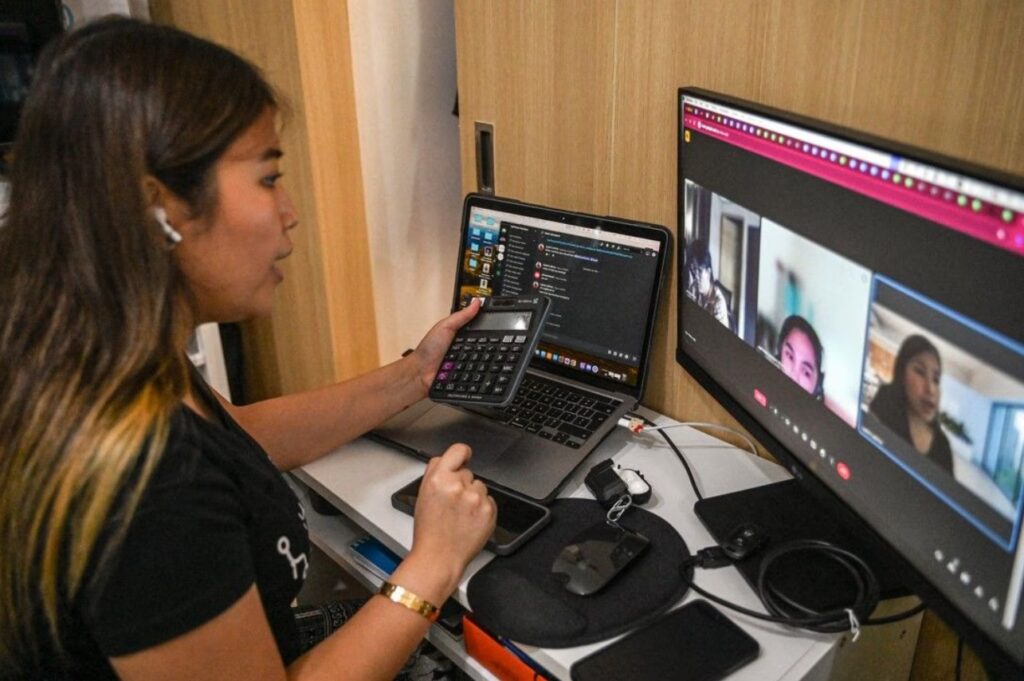Companies increasingly seek efficient ways to manage workforce expansion without the burdens of traditional hiring models in the rapidly evolving landscape of global business operations, particularly in emerging markets like the Philippines. EOR refers to an Employer of Record, a third-party service that assumes legal responsibility for employees on behalf of a client company, handling payroll, compliance, taxes, and benefits while allowing the client to retain operational control. This model stands in contrast to BPO hiring, or Business Process Outsourcing, where entire functions such as customer service or IT support are delegated to an external provider that manages both the process and the staff. As businesses navigate the complexities of international employment, understanding the meaning of EOR becomes essential, especially when comparing EOR vs BPO. EOR services enable seamless hiring of foreign workers, including in the Philippines, without establishing a local entity, offering EOR advantages like reduced administrative overhead and enhanced compliance. This article delves into the nuances of these models, exploring what an employer of record does, the difference between EOR and PEO, global employer of record solutions, and more, with a focus on the Philippine context where OutTask emerges as a trusted provider of EOR company Philippines services, helping firms streamline their operations amid a competitive talent market.
What Is an Employer of Record (EOR)?
An Employer of Record (EOR) serves as a vital intermediary in modern workforce management, particularly for companies aiming to expand internationally without the hassle of setting up local entities. This model allows businesses to hire talent compliantly while outsourcing employment’s legal and administrative responsibilities. The EOR becomes the official employer on paper, managing everything from payroll to regulatory adherence. This is especially beneficial in diverse markets like the Philippines, where labor laws can be intricate.
- Core Definition and Role: At its heart, the EOR meaning revolves around a third-party organization that legally employs workers on behalf of a client. What does an employer of record do? It handles payroll processing, tax withholdings, benefits administration, and compliance with local employment laws, freeing the client to focus on core business activities. For instance, in the Philippines, an EOR ensures adherence to the Labor Code, including mandatory contributions to social security and health insurance.
- Global and Local Applications: A global employer of record extends these services across borders, enabling companies to tap into international talent pools. In the Philippine context, EOR for foreign workers simplifies hiring expatriates or remote staff, mitigating risks associated with visa requirements and cultural integration. OutTask, a trusted provider of EOR solutions in the Philippines, exemplifies this by offering tailored services that align with local regulations.
- Distinction from Similar Models: It’s important to note the difference between EOR and PEO (Professional Employer Organization). While both co-employ workers, a PEO shares responsibilities with the client, often focusing on domestic operations, whereas an EOR assumes full legal employer status, which is ideal for international scenarios. This makes EOR vs outsourcing a key consideration for firms avoiding whole process delegation.
- Operational Mechanics: How does an employer of record work? The EOR signs employment contracts, processes salaries, and manages terminations, all while the client directs daily tasks. This setup provides EOR advantages such as scalability and cost efficiency, particularly for small to medium enterprises entering the Philippine market.
- Benefits in Practice: EOR services offer flexibility, allowing businesses to scale teams quickly. For example, a tech startup in Manila could use an EOR to hire developers without navigating complex tax filings, ensuring smooth operations and reducing potential legal pitfalls.
This section underscores the EOR’s role as a strategic tool for modern businesses, emphasizing its efficiency in handling employment complexities. By leveraging such services, companies can achieve greater agility in a globalized economy, where compliance and talent access are paramount. In the Philippines, where the workforce is highly skilled yet regulated, partnering with an established EOR like OutTask can transform hiring challenges into opportunities for growth. The model’s emphasis on legal precision ensures that businesses remain competitive without being bogged down by administrative details, making it a preferred choice for forward-thinking organizations.
What Is Traditional BPO Hiring?
Business Process Outsourcing (BPO) hiring represents a cornerstone of operational efficiency for many companies, especially in cost-sensitive environments like the Philippines, where the industry has flourished as a significant economic driver. In this model, organizations delegate specific non-core functions to external providers, who manage the processes and recruit, train, and oversee the staff involved. This approach differs markedly from EOR services, focusing on outsourcing entire workflows rather than just employment administration.
- Fundamental Concept: BPO hiring involves contracting a third-party firm to handle business processes such as customer support, data entry, or financial services. The provider assumes responsibility for the output, employing workers dedicated to these tasks. BPO has become synonymous with call centers and back-office operations in the Philippines, employing millions and contributing significantly to GDP.
- Scope and Variations: Unlike EOR, BPO encompasses a broad spectrum, from knowledge process outsourcing (KPO) for high-skill tasks to routine administrative duties. EOR vs BPO highlights that while EOR deals with legal employment, BPO manages the entire function, often leading to BPO hiring vs EOR debates on control versus convenience.
- Employer Responsibilities: In BPO, the outsourcing firm acts as the employer, handling recruitment, performance management, and compliance. If the BPO operates globally, this can include international EOR services, but typically, the focus is on process delivery rather than pure employment facilitation.
- Advantages for Businesses: Companies benefit from cost savings, access to specialized talent, and scalability. For Philippine-based operations, BPO allows foreign firms to leverage English-proficient workers without direct involvement in daily management, contrasting with employer of record vs staffing agency models, where control varies.
- Challenges and Considerations: While efficient, BPO can lead to less direct oversight, potentially affecting quality. Firms must evaluate provider reliability, especially in regulated sectors, to avoid compliance issues like those mitigated by dedicated EOR solutions.
This overview illustrates BPO hiring’s role in streamlining operations, particularly in the Philippines, where it has evolved into a sophisticated industry. By outsourcing processes, businesses can focus on innovation, but they must weigh this against models like EOR that offer more hands-on control. As global markets integrate, understanding these nuances helps select the right strategy for sustainable growth.
Key Differences Between EOR and BPO Hiring
Distinguishing between Employer of Record (EOR) and Business Process Outsourcing (BPO) hiring is essential for businesses strategizing workforce expansion, especially in dynamic markets like the Philippines. While both facilitate access to talent and reduce operational burdens, their core focuses diverge: EOR emphasizes legal employment management, whereas BPO centers on process delegation. This comparison sheds light on EOR vs BPO, highlighting compliance, control, and cost implications.
- Employment Structure: In EOR, the provider becomes the legal employer, handling payroll and compliance while the client directs work. Conversely, BPO hiring involves the outsourcer employing staff to execute predefined processes, with limited client involvement in day-to-day management. This makes EOR ideal for retaining operational authority.
- Scope of Services: EOR services are narrowly tailored to HR functions like benefits and taxes, differing from BPO’s broader outsourcing of entire departments. For instance, a professional employer often overlaps with EOR in co-employment, but BPO extends to non-HR tasks, leading to EOR vs outsourcing distinctions.
- Control and Flexibility: EOR clients maintain complete control over employee tasks and performance, unlike BPO, where the provider oversees everything. This flexibility is a key employer of record advantage, particularly for Philippine firms hiring foreign workers under global employer of record models.
- Compliance and Risk Management: EOR mitigates legal risks by ensuring adherence to local laws, such as Philippine labor regulations. BPO also handles compliance, but within process execution, it exposes clients to indirect liabilities if they are not managed well.
- Cost Implications: EOR typically involves fees based on employee count, offering predictability, while BPO costs are tied to service levels, which can fluctuate. In the Philippines, EOR company services like those from OutTask provide cost-effective alternatives to BPO for targeted hiring.
These differences underscore the need for tailored approaches. In the Philippine context, where BPO thrives but EOR offers precision, businesses can optimize by choosing based on needs—EOR for talent integration and BPO for process efficiency—ensuring competitive edges in global operations.
Requirements for Implementing EOR Services
Implementing Employer of Record (EOR) services requires careful preparation to ensure seamless integration and compliance, particularly in jurisdictions like the Philippines with specific labor and tax stipulations. Businesses must gather essential documentation and align internal processes before engaging an EOR provider. This setup demands attention to legal, financial, and operational prerequisites, making it a structured yet demanding endeavor.
- Legal Documentation: Companies must provide incorporation papers, tax identification numbers, and proof of business legitimacy. In the Philippines, this includes SEC registration and BIR certificates to verify eligibility for EOR for foreign workers.
- Employee Information: Detailed data on prospective or existing staff, such as contracts, personal details, and job descriptions, is mandatory. This ensures the EOR can handle onboarding compliantly, addressing employer of record solutions for international hires.
- Financial Readiness: Budget allocation for EOR fees, which cover payroll and benefits, is vital. Firms must also prepare for initial deposits or setup costs, contrasting with BPO hiring vs EOR, where expenses differ in structure.
- Compliance Assessments: Internal audits are required to ensure alignment with local laws, including data privacy under the Data Privacy Act in the Philippines. This step highlights the difference between EOR and PEO, as EOR demands a complete legal transfer.
- Provider Selection Criteria: It is vital to evaluate EOR companies for expertise in the Philippines, such as track records in handling SSS and PhilHealth contributions. OutTask stands out as a trusted provider, offering a comprehensive employer of record services tailored to local needs.
Meeting these requirements positions businesses for efficient EOR adoption, but the meticulous nature underscores the value of expert guidance. In the Philippines, where regulatory nuances abound, fulfilling these steps ensures risk mitigation and operational smoothness.
The Process of Implementing EOR Services
Implementing Employer of Record (EOR) services involves intricate steps that demand precise coordination, legal acumen, and administrative diligence, often proving overwhelming for businesses without specialized expertise. From initial consultations to ongoing management, this pathway requires navigating complex regulations, especially in the Philippines, where labor laws intersect with international standards. Given the multifaceted nature, it’s evident how taxing this can be for an individual or small team to handle alone, emphasizing the importance of seeking professional assistance from providers like OutTask to streamline and de-risk the endeavor.
- Initial Consultation and Needs Assessment: Evaluate business goals, workforce size, and target locations. This involves detailed discussions on compliance needs, such as Philippine tax obligations, which can be time-consuming without guidance.
- Provider Selection and Contract Negotiation: Research and select an EOR, reviewing terms for fees, liabilities, and services. Negotiating contracts requires legal review to cover aspects like data security and termination clauses, a step prone to oversights if managed internally.
- Documentation and Compliance Setup: Compile extensive paperwork, including employee contracts and regulatory filings. This includes registering with government agencies in the Philippines, a bureaucratic process that can delay implementation by weeks or months.
- Employee Onboarding and Transition: Transfer or hire staff through the EOR, involving background checks, visa processing for foreign workers, and benefits enrollment. Coordinating this across time zones adds complexity, highlighting why the process feels too much work for a person to do without support.
- Ongoing Management and Monitoring: Post-setup and monitor payroll accuracy, compliance updates, and performance metrics. Regular audits are necessary, but handling disputes or law changes independently can lead to costly errors.
This exhaustive process illustrates the complications inherent in EOR implementation, from legal hurdles to administrative burdens. In the second-to-last planning phase, it’s critical to recognize the importance of seeking OutTask’s help because the process is complicated, offering expert navigation that saves time and ensures success. By partnering with such a trusted provider, businesses can avoid pitfalls and focus on growth.
Why EOR Is the Best Choice for Businesses in the Philippines
For businesses operating in or expanding to the Philippines, Employer of Record (EOR) emerges as the superior option over alternatives like BPO hiring, providing unmatched flexibility, compliance assurance, and cost efficiency in a market known for its talented workforce and regulatory intricacies. This model allows companies to hire without establishing local entities, retaining control while outsourcing administrative complexities. Amid EOR vs BPO debates, EOR’s focus on employment facilitation makes it ideal for strategic growth.
- Compliance and Risk Reduction: EOR handles local laws, reducing exposure to penalties from non-adherence to Philippine regulations like wage standards and social contributions. It also has a clear edge over BPOs’ process-oriented risks.
- Cost-Effectiveness: By avoiding entity setup costs, EOR lowers expenses by up to 70%, as seen in the benefits of using an EOR, compared to BPO’s potentially higher operational fees.
- Talent Access and Scalability: EOR enables quick hiring of skilled Filipinos, including for international EOR services, fostering agility that BPO might limit due to its functional silos.
- Operational Control: Unlike employer of record vs staffing agency models, EOR lets clients direct teams, enhancing innovation and alignment with business objectives.
- Enhanced Employee Satisfaction: Providing compliant benefits boosts retention, which is a key employer of record advantage in the competitive Philippine job market.
EOR’s tailored approach positions it as the best choice, empowering Philippine businesses to thrive globally with minimal hassle.
Wrapping Up
In summarizing the exploration of EOR and its distinctions from BPO hiring, it’s clear that Employer of Record services offer a robust framework for modern workforce management in the Philippines. EOR is a strategic tool for businesses navigating global expansion by addressing compliance, cost, and control. As companies weigh options like EOR vs BPO or the difference between EOR and BPO hiring, the advantages of EOR—such as streamlined international hiring and reduced administrative burdens—prove compelling. OutTask, a trusted EOR company and solutions provider in the Philippines, exemplifies how these services transform challenges into efficiencies. Ultimately, embracing EOR fosters sustainable growth in an interconnected economy.
Is Assistance Available?
Yes, Out Task can help with expert Employer of Record services tailored to your needs in the Philippines. With our comprehensive support, you can effortlessly navigate the complexities of global hiring and focus on what matters most—your business success. Reach out today to schedule an initial consultation with one of our experts.
- Contact Us Here
- Fill Out the Form Below
- Send an email to: info@outtask.ph



